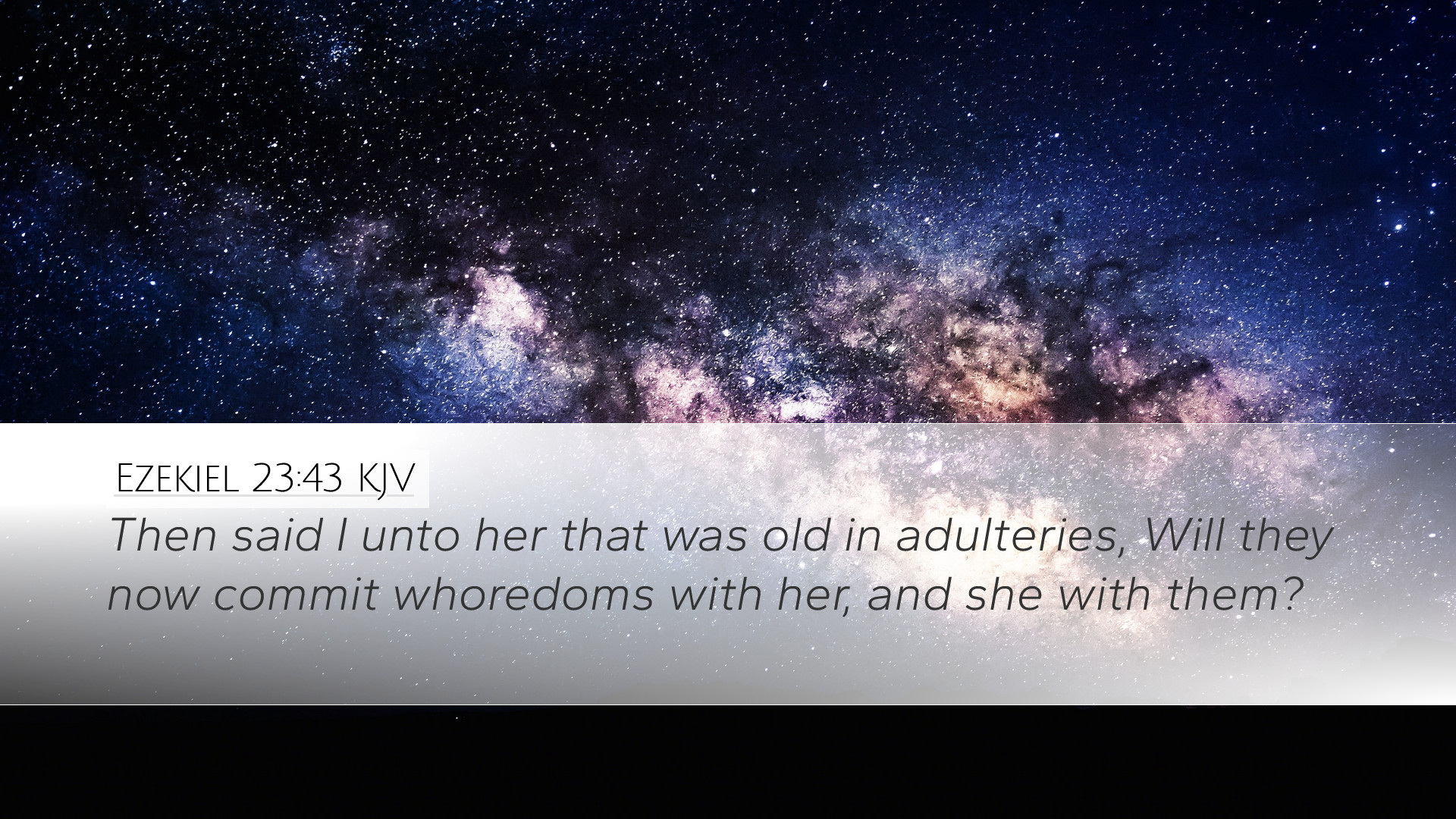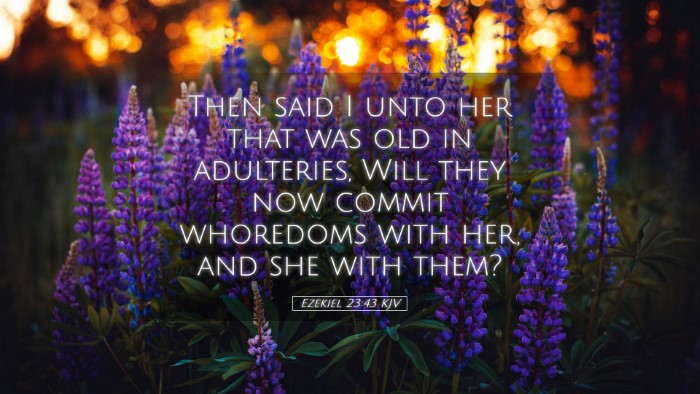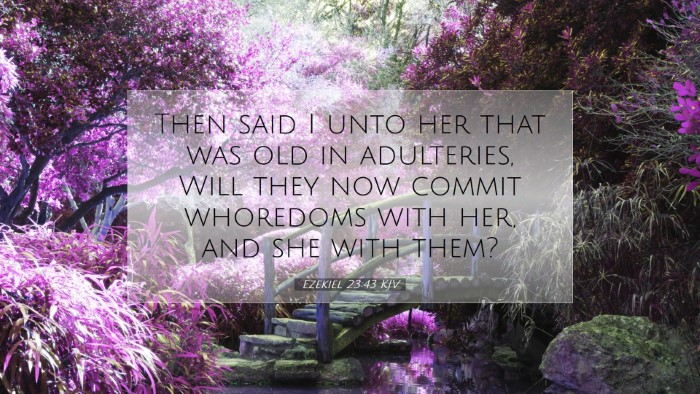Ezekiel 23:43 Commentary Summary
Verse Context: Ezekiel 23:43 states, "Then said I unto her that was old in adulteries, will they now commit whoredoms with her, and she with them?" This verse is set within a symbolic narrative where God uses the imagery of two sisters, Oholah and Oholibah, to represent the kingdoms of Israel and Judah. Through this passage, God addresses the deep-rooted idolatry and unfaithfulness of His people.
Insights from Public Domain Commentaries
Matthew Henry's Commentary
Henry reflects on the spiritual condition of the people of Israel, representing them through the metaphor of women who have turned away from God, engaging in spiritual adultery with other nations and idolatrous practices.
- Adultery as a Theme: Henry emphasizes that the use of "old in adulteries" signifies the persistent and habitual nature of Israel's unfaithfulness. This imagery portrays a nation entrenched in sinful practices, which ultimately brings them to a place of condemnation.
- God's Justice: The question posed by God through Ezekiel suggests a divine frustration. God is indicating that the people should be aware of their depravity yet continue to indulge in sin. Henry illustrates the seriousness of ignoring such warnings and highlights that repeated infidelity signifies a hardened heart.
Albert Barnes' Notes on the Bible
Barnes provides additional interpretation, focusing on the implications of sharing fate with others in sin. He points out that God compares the Israelite's alliances with foreign powers to a woman engaging in harlotry.
- Unholy Alliances: Barnes argues that the alliances formed by Israel and Judah with surrounding nations reflect a betrayal of their true God. The verse captures the spiritual degradation that arises from such unholy partnerships.
- Call for Reflection: The phrasing "will they now commit whoredoms with her" serves as a rhetorical question that calls the audience to introspection. Barnes encourages readers to recognize the gravity of their own alliances and relationships that may lead away from God.
Adam Clarke's Commentary
Clarke highlights the metaphorical significance of the two sisters, expanding on the interpretative lenses through which the passage should be understood.
- Symbolism of Oholah and Oholibah: Clarke discusses how Oholah represents Samaria (the Northern Kingdom) and Oholibah represents Jerusalem (the Southern Kingdom). The allegorical depiction intensifies the theme of spiritual infidelity.
- Divine Displeasure: Clarke underscores God's desire for His people to return to Him. The lamentation reflected in this passage indicates the heart of God longing for His wayward children while confronting them with the consequences of their actions.
Theological Reflections
The study of Ezekiel 23:43 reminds theologians and scholars of God’s righteous call to holiness. The persistent question forced upon the captives—“will they now commit whoredoms?”—is a poignant reminder of God's covenant faithfulness contrasted against human infidelity.
Lessons on Idolatry and Unfaithfulness
- Idolatry's Trappings: The imagery of harlotry serves as a strong warning against the idolatrous attractions of modern life. Just as the Israelites were seduced by foreign entities, contemporary believers must be vigilant against distractions that lead to spiritual compromise.
- Call to Repentance: The question God poses is an invitation to repentance. The divine inquiry stirs up the notion that understanding one's brokenness is essential for Restoration and reconciliation with God.
Message for Present-Day Readers
This verse serves as a reminder for today's Christians about the seriousness of remaining faithful to God. In a world filled with competing allegiances, readers should reflect upon their spiritual commitments and the influences they allow in their lives. The persistent love of God juxtaposed with human unfaithfulness is a central theme of Scripture that calls for deep reflection and action.


